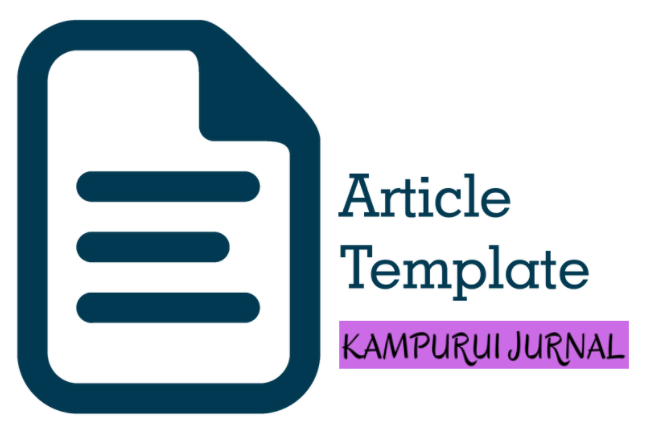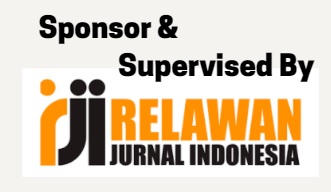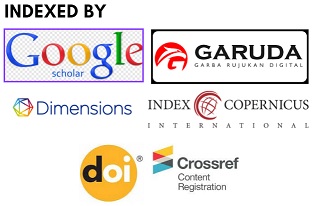Pengembangan Model Pencegahan Penyebaran Covid-19 di Warung Kopi Samarinda
DOI:
https://doi.org/10.55340/kjkm.v4i1.729Keywords:
Covid-19, Usaha bebas Covid-19, Warung KopiAbstract
Coffee shops or cafes have the potential to create crowds of customers and of course have a high risk of spreading Covid-19. Therefore, research is needed that aims to describe the strategy of cafe managers in preventing the spread of Covid-19 and customer perceptions of this strategy. The design of this research is descriptive qualitative with a case study approach. Research informants are cafe managers and loyal customers who are selected by purposive sampling. The research was conducted at the Kastem Coffee, Samarinda City in August 2021. The information collected was analyzed qualitatively. The results obtained information that cafe managers and customers since the pandemic until the research was carried out had still implemented the Covid-19 health protocol. The cafe manager plans to develop models to prevent the spread of Covid-19 in the cafe environment through cross subsidies and mutual assistance to fellow customers. Cafe customers agree and support, have not made a choice, and do not agree with the model development plan. The results of this study can be taken into consideration for managers of similar businesses and other types of businesses in supporting business environment free of Covid-19.
Downloads
References
Abu, I., Sultan, M., & Putra, E. R. (2021). Basamo Samarinda’S Herbal and Herbal Health Business in the Midst of the Pandemic Covid-19. Berkala Akuntansi Dan Keuangan Indonesia, 6(1SP), 34. https://doi.org/10.20473/baki.v6i1sp.26318
Ade Onny Siagian, T. F. P. (2020). Strategi Pengembangan Kompetisi Usaha Kecil Menengah di Kabupaten Jombang. Jurnal AKRAB JUARA, 5(4), 77–85.
Akbar, M. J. C., & Sunarti. (2018). Pengaruh Electronic Word Of Mouth Terhadap Keputusan Pembelian (Survei pada Konsumen Restoran Sushi Tei Kelapa Gading). Jurnal Administrasi Bisnis (JAB), Vol. 60(No. 3), h. 45-51.
BNPB. (2020). Transkrip Keterangan Presiden Soal Pembatasan Sosial Berskala Besar atau PSBB. Bnpb.Go.Id.
Fadly, H. D., & Sutama, S. (2020). Membangun Pemasaran Online Dan Digital Branding Ditengah Pandemi Covid-19. Jurnal Ecoment Global : Kajian Bisnis Dan Manajemen, 5(2), 213–222. http://ejournal.uigm.ac.id/index.php/EG/article/view/1042
Hardilawati, W. laura. (2020). Strategi Bertahan UMKM di Tengah Pandemi Covid-19. Jurnal Akuntansi Dan Ekonomika, 10(1), 89–98. https://doi.org/10.37859/jae.v10i1.1934
Hariyanti, M. (2015). Analisis Data Kualitatif Miles dan Hubermen. Kompasiana.
Ilyas, F. (2021). Analisis SWOT Kebijakan Pembatasan Sosial Berskala Besar (PSBB) dan Pemberlakuan Pembatasan Kebijakan Masyarakat (PPKM) Terhadap Dampak Ekonomi di Tengah Upaya Menekan Laju Pandemi Covid-19. Jurnal AKRAB JUARA, 6(3), 190–198.
MENDAGRI. (2021). Instruksi Menteri Dalam Negeri Nomor 15 Tahun 2021 Tentang Pemberlakuan Pembatasan Kegiatan Masyarakat Darurat Corona Virus Disease 2019 di Wilayah Jawa dan Bali (Vol. 3, Issue 2, p. 6).
MH, N., & Harmon, H. (2017). Faktor Penentu Perilaku Impulsive Buying Pada Fashion Business Di Kota Bandung. Jurnal Riset Bisnis Dan Investasi, 2(3), 121. https://doi.org/10.35697/jrbi.v2i3.97
Mulyadi, M. I., Warjiman., & Chrisnawati. (2018). Efektivitas Pendidikan Kesehatan Dengan Media Video Terhadap Tingkat Pengetahuan Perilaku Hidup Bersih dan Sehat. Jurnal Keperawatan STIKES Suaka Insan, 3(2), 1–9.














